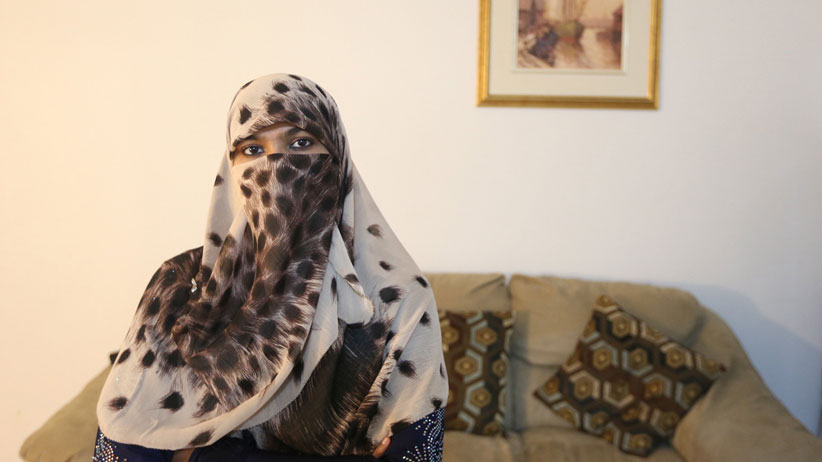Why the Tories’ niqab gambit is flopping in B.C.
Nancy Macdonald reports on a two-way race that is now between the Liberals and the NDP
Share

Dianne Watts is about as close to a deity as Surrey, B.C., knows. A decade ago she did the unthinkable, knocking off the city’s incumbent mayor as an Independent, with no party machinery behind her. (In B.C., the party system dominates at the municipal level as well.)
Watts is cunning, opaque and tough. As a young woman, she escaped a violent partner. In Surrey, she united a hostile, fractious council under a single party banner, one she created. Watts transformed what was a sprawling suburban mess, carving out a downtown core. She chipped away at crime, a perennial concern. And she pushed back at an attitude that made the city—on pace to knock off Vancouver as the most populous in B.C.—the butt of jokes (“better safe than Surrey,” is just one).
So it was considered a major coup when the Tories announced the three-term former mayor would stand for them in South Surrey–White Rock.
Then, a month ago, Watts’s campaign team mailed out a flyer, a tabloid mock-up: “We will fight jihadist terrorists at home and abroad,” read the headline. It included a quote from an ISIS terrorist, in all-caps: “YOU WILL NOT FEEL SAFE IN YOUR BEDROOMS.” It was craven and amateurish, though not neccesarily out of line with the fear tactics being used elsewhere by the Conservative party. Still, the blowback was strong and immediate.
Angry letters about the “absurdist” and “shameful” mail-out flooded city papers. The Peace Arch News had to append a note: it hadn’t received a single pro-Watts letter to help balance the vitriol, it explained.
Just like that, can’t-lose Watts was suddenly polling five to seven points behind her Liberal opponent, according to two recent election forecasts by Vox Pop Labs and ThreeHundredEight.com. It’s hard to imagine South Surrey–White Rock is going to take a flyer, so to speak, on a Liberal rushed in just weeks ago, Judy Higginbotham, after her predecessor was dumped. In 2011, the party came third, with 17 per cent of the vote in the old riding. And the new constituency amalgamates ridings that have never voted anything but right: in the ’90s, Reform, then Canadian Alliance, then.
Conservative after the right-wing merger. But party internals have Higginbotham within striking distance.
[widgets_on_pages id=”Election”]
Whatever happens, the dust-up over terrorism in Surrey goes a ways to explaining the Tories’ flagging brand in B.C., a Conservative fortress under Stephen Harper’s leadership. “You can get traction with these tactics, but they also alienate voters,” says political scientist Max Cameron of the University of British Columbia. And nowhere in Canada is Harper’s apparent exploitation of “the Muslim question” less popular than in B.C.
A detailed Angus Reid Forum analysis of the issues highlights a deep schism between the province and everywhere else in the country: On a wide range of measures, British Columbians were shown to be far more tolerant of Muslims and of the right of adherents to wear the niqab. Some 90 per cent of Quebecers feel it should be banned, whereas in B.C. almost one in two feel it should not. British Columbians are also far less likely to consider terrorism a “serious threat”: just 49 per cent, compared with 69 per cent of Quebecers and 64 per cent of Ontarians. And in B.C., just 26 per cent believe last year’s shooting in Ottawa was a terrorist attack, compared with 41 per cent in Alberta and the Prairies. In the province home to the worst act of terrorism in this country’s history—the Air India bombing that killed 329—one in two believe the shooting was the act of a mentally ill man.
Conservative operatives are certainly aware of the night-and-day split on these questions west of Kelowna, and it seems they were willing to make the sacrifice in return for gains in central Canada.
The Tories, who are down almost 20 percentage points in B.C., compared to the last week of the 2011 election, are still expected to hold much of their bulwark in the B.C. Interior and Bible belt. In the Lower Mainland and Vancouver (where there are 24 seats up for grabs), however, a pitched, two-way fight has emerged between the NDP and Liberals, who currently hold just two of the province’s 42 seats. (Of course, the Tories know the battle between progressives could split the leftist vote, allowing them to capture some urban ridings where they are polling third.)
They may be losing steam everywhere east of the Rockies, but New Democrats are holding steady in B.C., where residents are more than twice as likely as residents of Quebec and the Prairies to believe Harper’s Liberal-supported anti-terror legislation, Bill C-51, oversteps civil liberties. The party believes it could sweep Vancouver Island, with the exception of Saanich–Gulf Island, which is expected to return to Elizabeth May. Her Greens are polling at 10 per cent, but are not expected to make further gains.
B.C. has never missed an opportunity to buck a national trend during a federal writ. Election 42 looks to be no different.